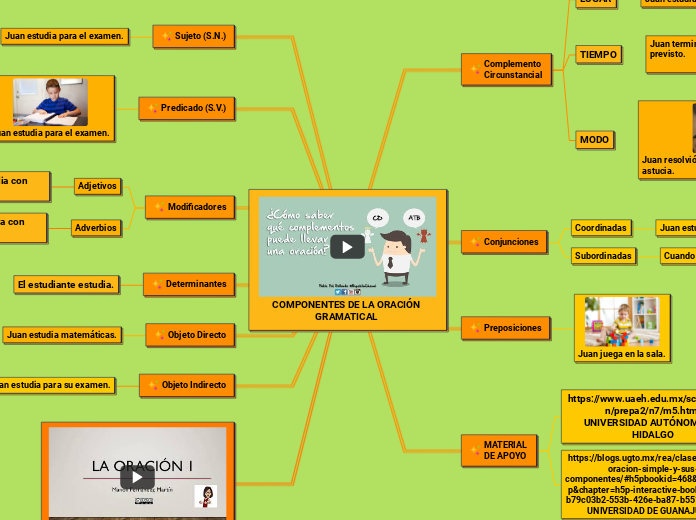av Oscar Angelo Socualaya Catunta för 1 år sedan
304
COMPONENTES DE LA ORACIÓN GRAMATICAL

av Oscar Angelo Socualaya Catunta för 1 år sedan
304

Mer av detta
As the main word in a sentence, the verb will generally describe an occurrence or an action.
The negative verb forms are made by putting not after an auxiliary verb.
An intransitive verb has two characteristics:
1.it is an action verb, expressing a doable activity
2.it will not have a direct object receiving the action
A participle is a form of a verb that can be used as an adjective or combined with the verb to be to construct different verb tenses.
Auxiliary verbs are verbs such as have, be, may, do, shall, will, can, or must that are used with another verb to show the verb's tense, to form a question, etc.
A modal verb is a type of verb that is used to indicate modality. Commonly used modal verbs are can, could, must, should, had better, have to and sometimes need or dare.
In grammar, the voice of a verb describes the relationship between the action that the verb expresses and the participants identified by its arguments.
A transitive verb will only makes sense if it applies its action on an object.
Conditional verbs are used to create conditional sentences, which express hypothetical or unlikely situations. Conditional verbs can be used in the past, present, or future tense, and auxiliary verbs like can/could, will/would, and may/might are important in forming conditionals
Create sentences with examples!